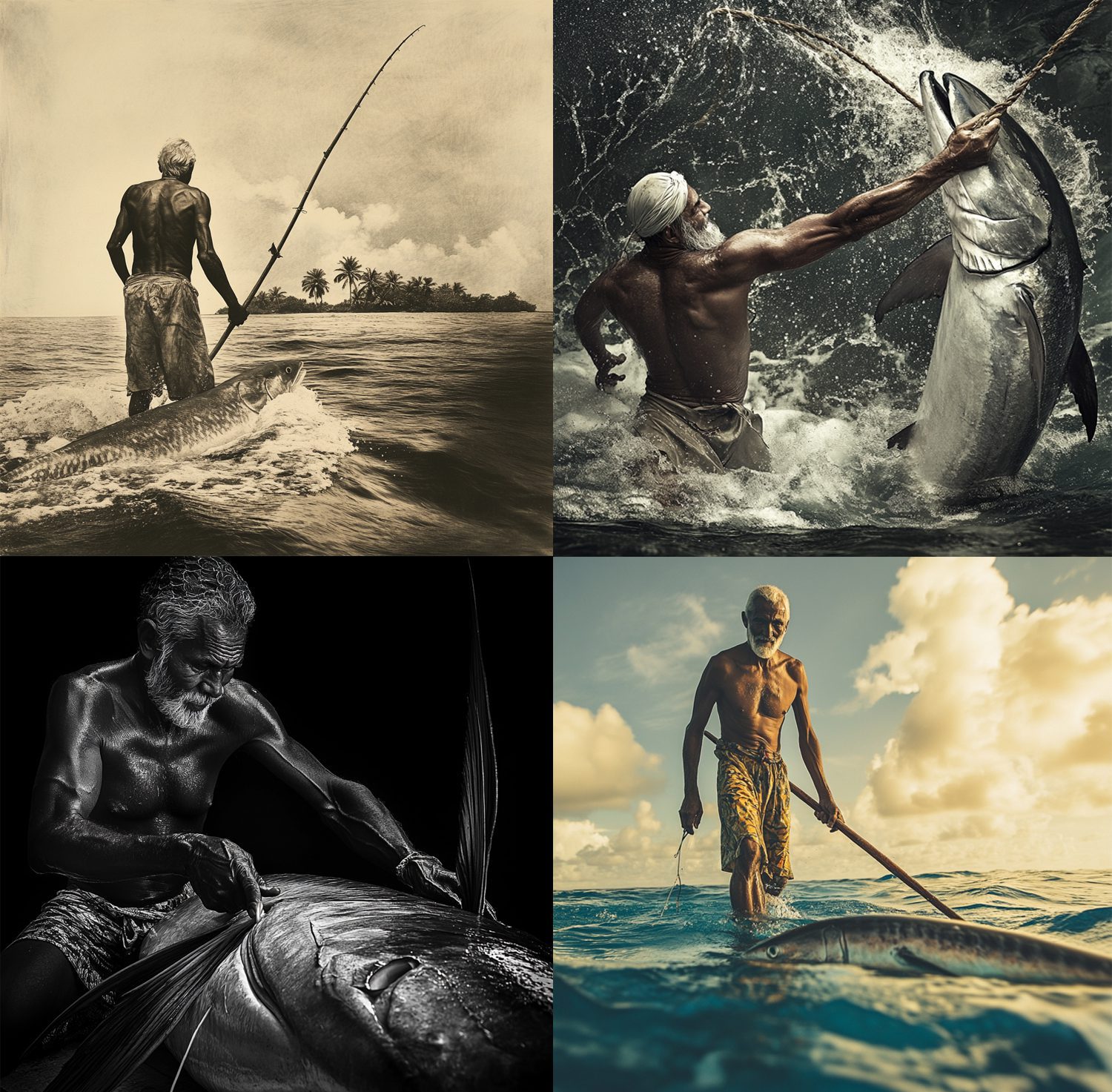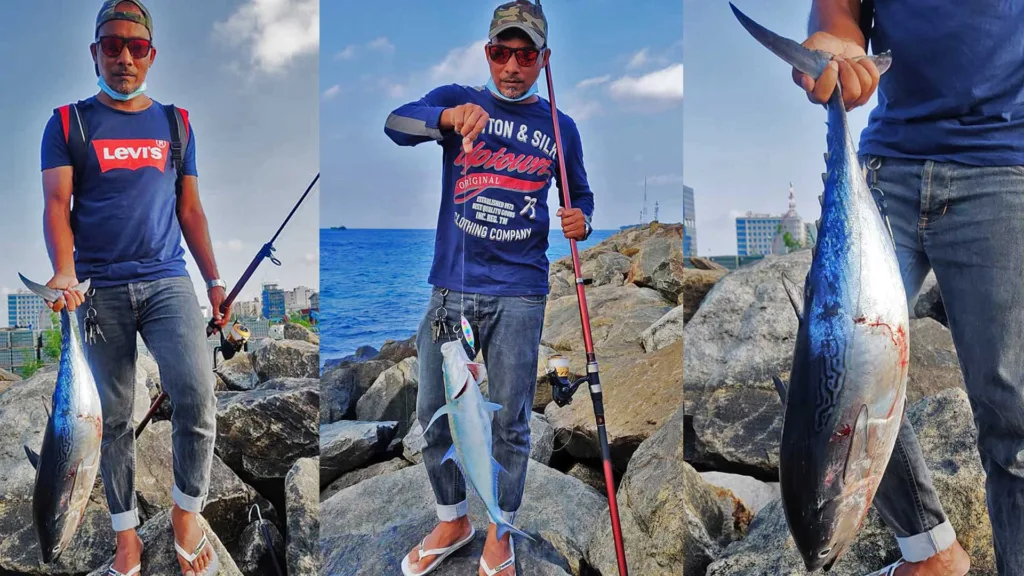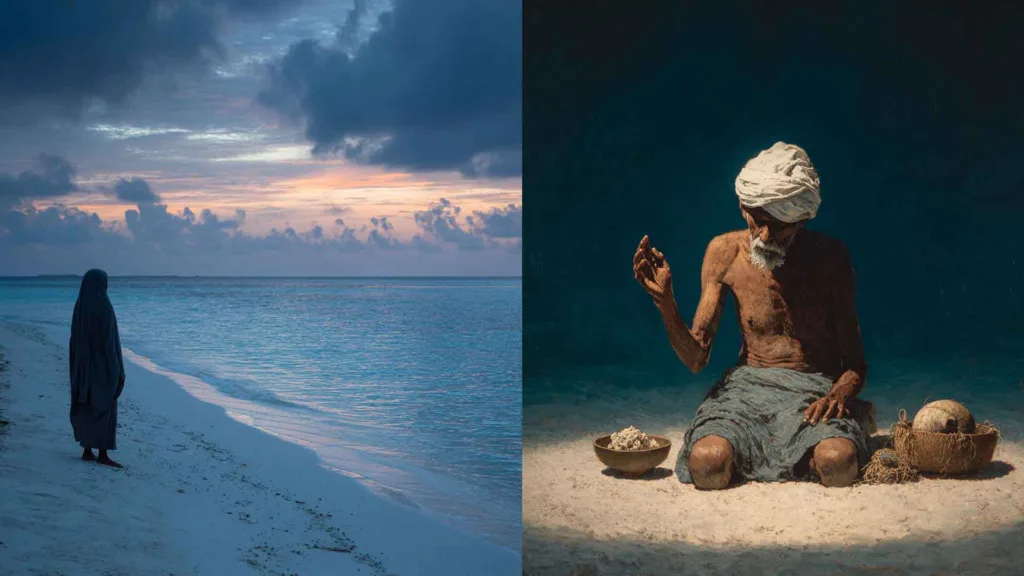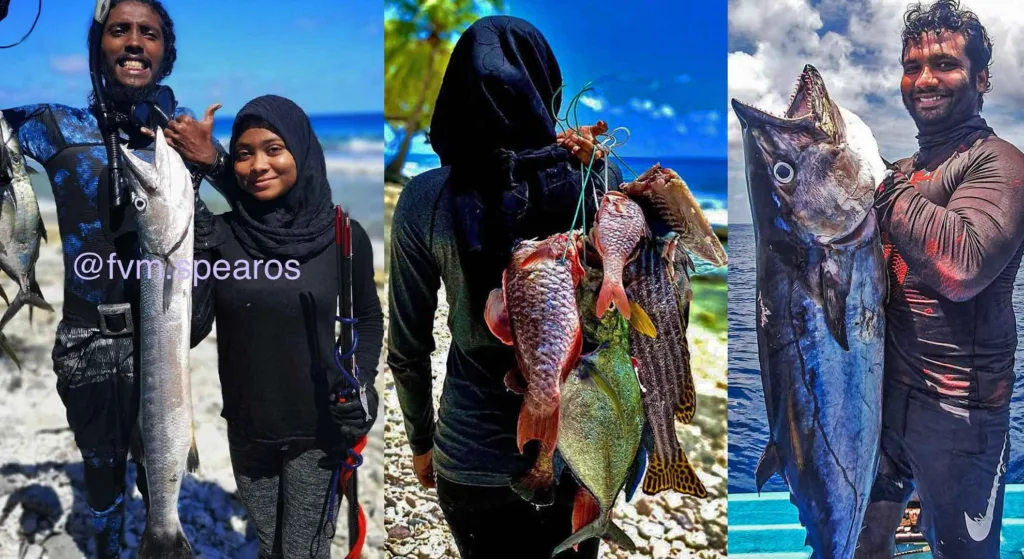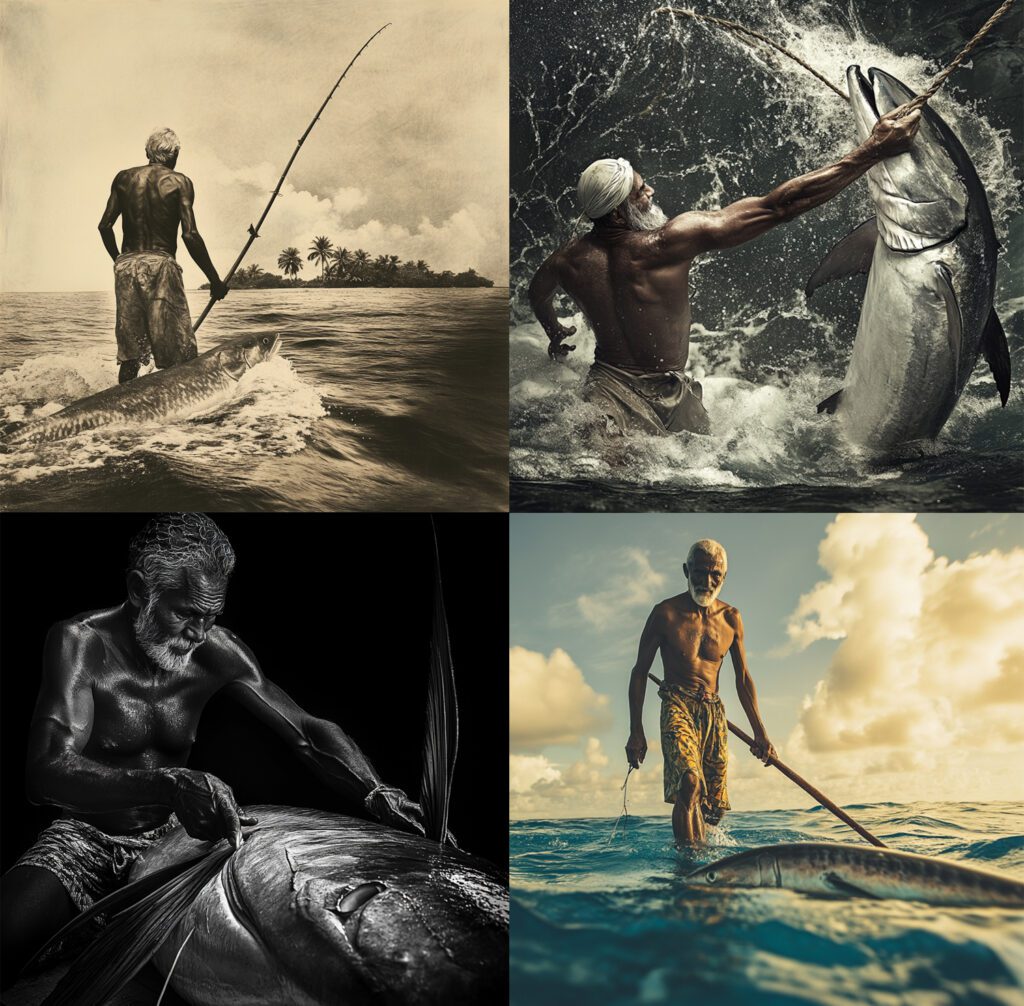
Xavier Romero Frías, a Spanish writer and scholar who carried out extensive research on Maldivian culture, defines Fanditha as “local sorcery or magic. In his book, ‘The Maldive Islanders’, he stated that in contemporary Dhivehi, ‘faṇḍitha’ is homonymous with esoteric knowledge, sorcery, or magic.
In Maldives, Fanditha refers to a wide range of ancient methods, magic, and astrological applications. People most commonly use the fanditha to bring them good luck, fulfil their desires, and achieve success and wealth. In ancient times, fishermen would seek the help of fanditha performers (fandithaveriya) to get a decent fish catch.
I’ve seen fishermen from fishing vessels visit the homes of prominent fanditha practitioners to seek help with their fishing efforts.
“Rekibe, could you please do something for the Dhoni (fishing vessel)? “Every day, we see a large ray near the Dhoni (a traditional fishing vessel). We are unable to make a successful catch,” the chief fisherman from a famous dhoani asked Rekibea for help while sitting on the undhoali (a traditional Maldivian swing made of wood) at the home of a fanditha practitioner.
Bring an immature coconut palm leaf from this house’s backyard. The fanditha master directed the fishermen. My friend and I were sitting on a joali, a traditional chair, watching the procedure.
Rekibe took his pen and began writing on the coconut palm leaf after the fishermen brought it to him. On the leaf, he wrote a lengthy sequence of Arabic words. Then he folded the palm leaf in half, making a bracelet shape.
The fisherman collected the leaf from Rekibe and left. I witnessed this scene on my island. In addition to asking for help, they meet Rekibe almost every day to talk about fishing and other island issues.
Fuvahmulah is famous for its yellowfin tuna catch, particularly during the southwest monsoon. Our fishermen also use a number of other fishing techniques to catch different kinds of fish, such as tuna, wahoo, reef fish, and kattelhi fish (Promethichthys prometheus).
People use different types of fanditha to ensure a successful fish catch or to meet other fishing-related needs. Some fanditha masters go to the beach and make fanditha for the fishing boats.
Fanditha practitioners and fanditha remain important aspects of Maldivian mysticism, tradition, and culture. It combines the fascinating Maldivian traditions and folklore. The origins of fanditha remain unknown in the Maldives. In Maldivian culture and belief, though, it is deeply ingrained.
